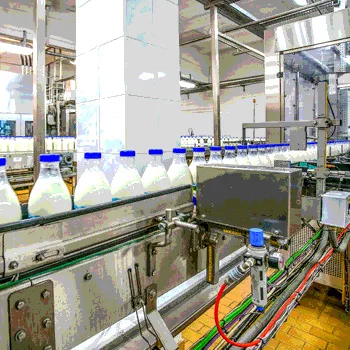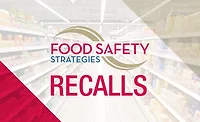Undeclared Allergens and Automation: The Crossroad of Food Safety and the Reduction of Recalls

The U.S. Food and Drug Administration (FDA)’s Food Safety Modernization Act (FSMA) requires that food companies step up to the proverbial plate to improve their Hazard Analyses, Good Manufacturing Practices and processes for prevention of food recalls. These new requirements mandate that manufacturers monitor and verify everything from their supply chain management, equipment maintenance, ingredient specifications, required nutrient facts panel information and more.
While there are many solutions for preventive controls in any number of FSMA-specific components, one area of particular interest is automation, particularly in the area of packaging. In many cases, these solutions are geared towards solving problems on the factory floor before they have a chance to happen. This is an attractive option, and it helps prevent foodborne accidents such as undeclared allergens in the form of ensuring accurate product labeling.
While FDA has long declared that major allergens (milk, eggs, fish, crustacean shellfish, tree nuts, wheat, peanuts and soybeans) be clearly identified on food labels, a quick search of FDA recalls, both voluntary and via seizure, shows that undeclared allergens continue to be a serious problem. According to the American Institute of Baking, 43 percent of food product recalls are due to mislabeling. Subsequent recalls, reports a Deloitte study on Recall Executive Effectiveness, can cost up to $10 million, or more.
Human error is sometimes behind packaging mistakes, particularly during the manual set up of packaging line equipment. Errors such as an entering an incorrect date code, use of the wrong label, a packaging print error or placing the product in the wrong package entirely can result in a multitude of problematic outcomes for the company. These include spoilage and unsalable products in the instance of an incorrect date code as well as undeclared and/or incorrectly labelled allergens and ingredients in the case of the wrong packaging.
Food manufacturers are required to establish and implement a food safety system that prevents such problems, and this plan must include an analysis of potential existing hazards and preventive control plans to eliminate these risks. By preventing these packaging errors at the source, the requirement for corrective actions involving recalls of mislabeled or incorrectly packaged foods can be avoided, and food manufacturers can maximize the opportunity to get it “right the first time.”
Code assurance and packaging verification systems are examples of areas where automation is making inroads with food manufacturing facilities. Companies in the automation business say their software products can reduce coding errors, reduce packaging mistakes and reduce the risk of food recalls related to an undeclared allergen.
By following the Purdue Enterprise Reference Architecture model, automation systems facilitate enterprise integration that synchronizes business strategy with operational execution in real-time. Seamless integration between systems on the packaging lines provides the ability to couple control with food safety.
“FSMA’s many mandates, and its built-in flexibility in how to meet those requirements, should be strong motivation for food manufacturers to replace paper and general purpose software with 21st century tools to manage preventive controls, validation, verification, monitoring, supply chain management, recordkeeping and recalls,” says Charles Breen, EAS Consulting Group’s independent advisor for FSMA.
Indeed, automation and FSMA can go hand in hand, helping companies to proactively prevent the very situations that wreak havoc for the consumer, the manufacturer and for the bottom line. These preventive controls can represent the heart of what FDA’s FSMA aims to accomplish.
Amy Scanlin is with EAS Consulting Group LLC, which specializes in FDA regulatory matters. The author thanks Erik Phillips of AutoCoding Systems for assistance with this article.
Looking for quick answers on food safety topics?
Try Ask FSM, our new smart AI search tool.
Ask FSM →








